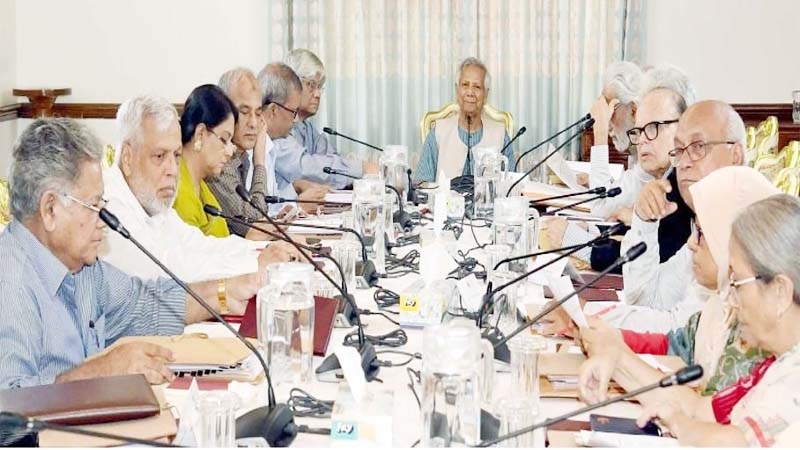- Tarique visits National Martyrs’ Memorial, pays homage to martyrs |
- Muslim League leads new electoral alliance, Jatiya Muslim Jote |
- Tk 500cr Drive to Turn Haor Fallow Land Into Farmland |
- Tarique Rahman returns home amid rapturous reception |
- Home After 17 Years: Tarique Returns to Gulshan Residence |
Govt. amends SSF law, ends special security for Hasina, family

The council of advisers, chaired by Chief Adviser Professor Muhammad Yunus,
decided on Thursday to amend the Special Security Force (SSF) Act 2021,
effectively removing special security provisions for former prime minister
Sheikh Hasina and her close relatives.
In a statement issued after the meeting at the Chief Adviser's Jamuna office, the Chief Adviser's Office (CAO) noted that the interim government was formed on August 8, 2024, in response to a mass uprising. Given the new political landscape, it was deemed impractical to continue implementing the law's provisions regarding the security of the family of the "Father of the Nation," Bangabandhu Sheikh Mujibur Rahman.
The statement emphasized that the installation of the interim government shifted security priorities, necessitating changes to the SSF Act. As a result, the council unanimously approved amendments to the law.
Additionally, the Advisory Council approved the draft of the "Security of Family Members of the Father of the Nation (Repeal) Ordinance, 2024," pending vetting by the Legislative and Parliamentary Affairs Division.
Speaking to reporters after the meeting, adviser Syeda Rizwana Hasan, who oversees the environment, forest, and climate change ministry, explained that the law was being amended as it was seen as "discriminatory." She also highlighted the interim government's commitment to ethical reforms, including the cancellation of the provision allowing for the whitening of black money.
Rizwana also noted that Bangladesh's recent signing of the Instrument of Accession to the International Convention for the Protection of All Persons from Enforced Disappearance was a significant step in ensuring accountability for enforced disappearances, with around 700 people still missing. She stressed the need for a mechanism to prevent future disappearances carried out by law enforcement agencies under the guise of national security.
The International Convention for the Protection of All Persons from Enforced Disappearance was adopted in New York on December 20, 2006.

